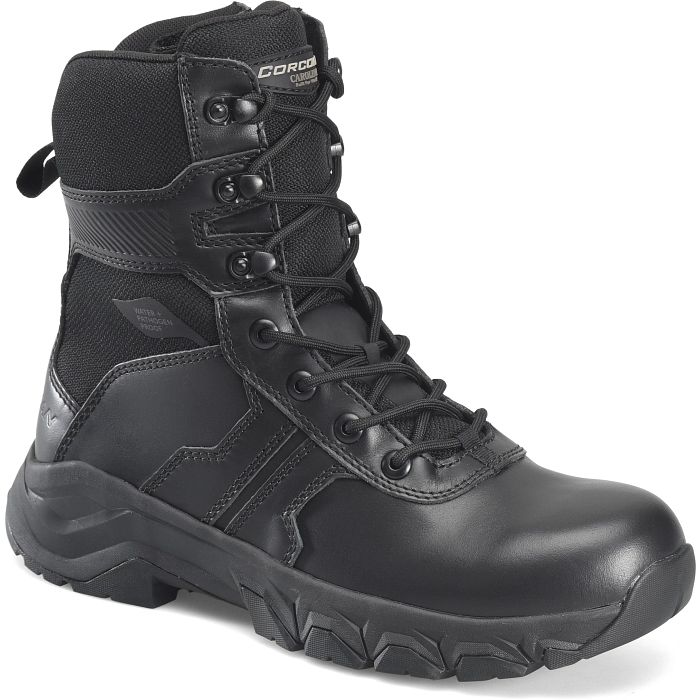Men's Corcoran Bolster 8" Pathogen Resisting Side-Zipper Duty Boot
$172.95
Color:
Black
Width:
Size:
Men’s 8” Lightweight Waterproof Pathogen Resisting Side-Zipper Duty Boot
The Bolster 8" Pathogen Resisting Side-Zipper Duty Boot is designed to provide comfort and protection to those who work in hazardous conditions.
Details
- Black Cruiser Cool Leather Technology Leather Upper
- Waterproof & Pathogen Resisting SCUBALINER™
- EVA Midsole
- Removable AG8 Polyurethane Dual-Density Foam Comfort Footbed
- Oil & Slip Resisting Rubber Outsole
- Electrical Hazard Rated
- YKK Side Zipper
- Non-Metallic Shank
- Cement Construction
Electrical Hazard - Electrical Hazard footwear is designed to impede the flow of electricity through the shoe and to the ground, reducing the likelihood of electrocution, in accordance with ASTM F2413-11.
Slip Resisting - Slip-resistant footwear, also known as non-slip footwear or anti-slip footwear, is specially designed to provide enhanced traction and stability on slippery surfaces, reducing the risk of slips and falls. This type of footwear is essential in industries and work environments where workers are exposed to wet, oily, greasy, or otherwise slippery floors, such as hospitality, healthcare, food service, and manufacturing.
Soft Toe - Soft toe footwear, also known as non-protective toe or plain toe footwear, refers to a category of work boots or shoes that do not have a reinforced protective toe cap. Unlike steel toe, composite toe, or alloy toe footwear, soft toe footwear does not feature a protective element in the toe area to guard against impact and compression hazards.





















